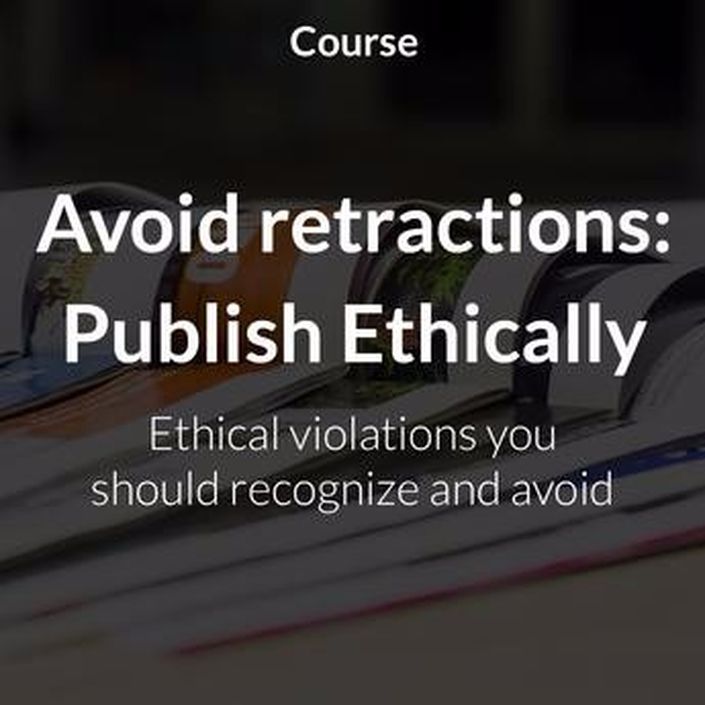
How To Avoid Retractions And Publish Ethically?
What will you learn?
- Summary of the ethics issue and five critical ethical violations in research
- Useful case studies, practical tips, and guidelines to prevent retractions
- The implications of misconduct, the dos and don’ts, and basic guidelines
- The significance of ethics in publication and problems that lead to unethical behavior
- Avoid ethical issues in your writing and reduce your chances of a rejection or a retraction
- Unethical practices to avoid, based on handpicked case studies and industry experiences
Course Description
In these times of high-pressure competition, the eagerness to get published causes many a bright mind to make haste or even cut corners. As a result, retractions are on the rise owing to increased instances of ethical violations. While journal editors and reviewers are advising authors to be more aware of publishing guidelines, authors too need to understand the implications of misconduct and ensure they don't violate the ethical norms of publishing, even accidentally.
The course uses different learning tools like learning videos, case studies, guidelines, presentations, etc., to help you understand the importance of ethics in research. It also outlines the most common reasons for retractions, including what possible violations to watch out for and how to avoid it. You will learn about the most common unethical practices among researchers, get answers to your questions about ethical publishing, and know the best practices for responsible authorship. By the time you are through with this course, you will know how to publish ethically, be able to boost your reputation as a researcher, and ensure your research contributes to scientific progress.
What topics will you cover?
Lecture 1: Introduction to ethics
Lecture 2: Know it to avoid it: Five unethical practices
Lecture 3: What can you do to be a responsible and ethical researcher?
Lecture 4: Conclusion
Your Instructor

Part of Cactus Communications’ R ecosystem of tools and solutions for researchers, Upskill is a learning platform that comprises of the largest collection of researcher-focused programs, developed by top academic experts. Learn anytime, anywhere with bite-sized online programs on research writing, journal publication, career development, science communication, funding, researcher wellness, and more. Our multi-format programs come with expert advice, practical examples, and a certificate on course completion, which allow researchers to apply what they’ve learnt to excel in real-world scenarios. Trusted by top academic institutions, and over 15,000 researchers, Upskill empowers researchers to master new skills on the path to all-round researcher success.
Course Curriculum
-
StartFive rampant unethical practices in research - Video (3:46)
-
StartData falsification and fabrication - Case Study
-
StartSalami slicing - Video (2:33)
-
StartPitfalls of salami slicing: Focus on quality and not quantity of publications -Slide deck
-
StartUnintentional, Intentional, and Accidental Plagiarism - Video (17:47)
-
StartIdentifying harmful conflicts of interest - Video interview (5:16)
-
StartHow to deal with conflicts of interest in research publication?
-
StartCheck your understanding: Quiz 2
-
StartGuidelines for ethical publications - Useful resources
-
StartSubject-specific ethical issues to be taken into consideration
-
StartFAQ1: Are there any plagiarism check services available?
-
StartFAQ2: Is publishing the same paper in different languages duplication?
-
StartFAQ3: Can I publish two papers in different languages using the same data and method, but a different focus?
-
StartFAQ4: Who qualifies to be an author?
